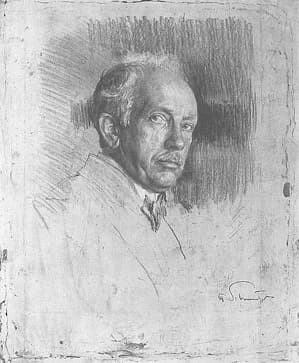Where can you find passionate stories about love and hate, horrible stories about rape and dismemberment, accounts of slave trafficking, tales of high honor, and cruel treachery of war? The answer is very simple, as you only need to turn to the pages of the Old Testament.
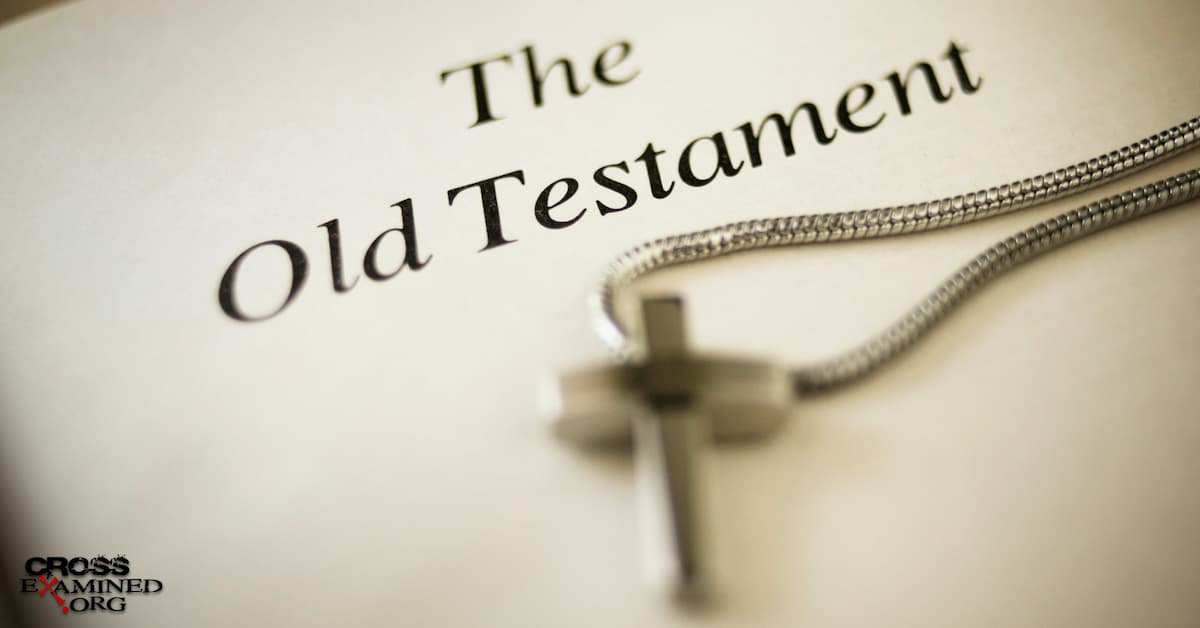
The Old Testament © crossexamined.org
The Old Testament is primarily based on the Hebrew Bible and contains a collection of ancient religious writings believed to be the sacred Word of God. It brings together a number of documents that tell the story of the founders and early followers of the religion. The number of books that make up the Old Testament differs between Christian denominations, yet these pages are filled with vivid and intensely human stories. We find everything from patriarchs and kings and queens to farmers, warriors, and prostitutes, and there is hardly a story in the books of the Old Testament which hasn’t inspired an opera or oratorio, or a verse that hasn’t been set to music.
Let us explore some of these stories and corresponding musical settings. From the Book of Judges comes the story of Jephtha who is busy fighting the Ammonites. Before the start of the battle Jephtha promises to the Lord that if victorious, he will sacrifice the first thing coming out of his house to greet him. Jephtha wins the battle, but when he arrives back home, it is his daughter who comes out to meet him. As soon as his daughter learned of the promise, she said, “My father, you have made a solemn promise to the Lord, and you shall keep it, for God has given to you victory over the enemies of your people.”
George Frideric Handel: Jephtha – Act III Scene 1: Air: Waft her, angels (John Mark Ainsley, tenor; Berlin Akademie für Alte Musik; Marcus Creed, cond.)
George Frideric Handel: Jephtha – Act III Scene 1: Air: Farewell, ye limpid springs (Christiane Oelze, soprano; Berlin Akademie für Alte Musik; Marcus Creed, cond.)
George Frideric Handel: Jephtha – Act III Scene 2: Ye house of Gilead (RIAS Chamber Chorus; Berlin Akademie für Alte Musik; Marcus Creed, cond.)
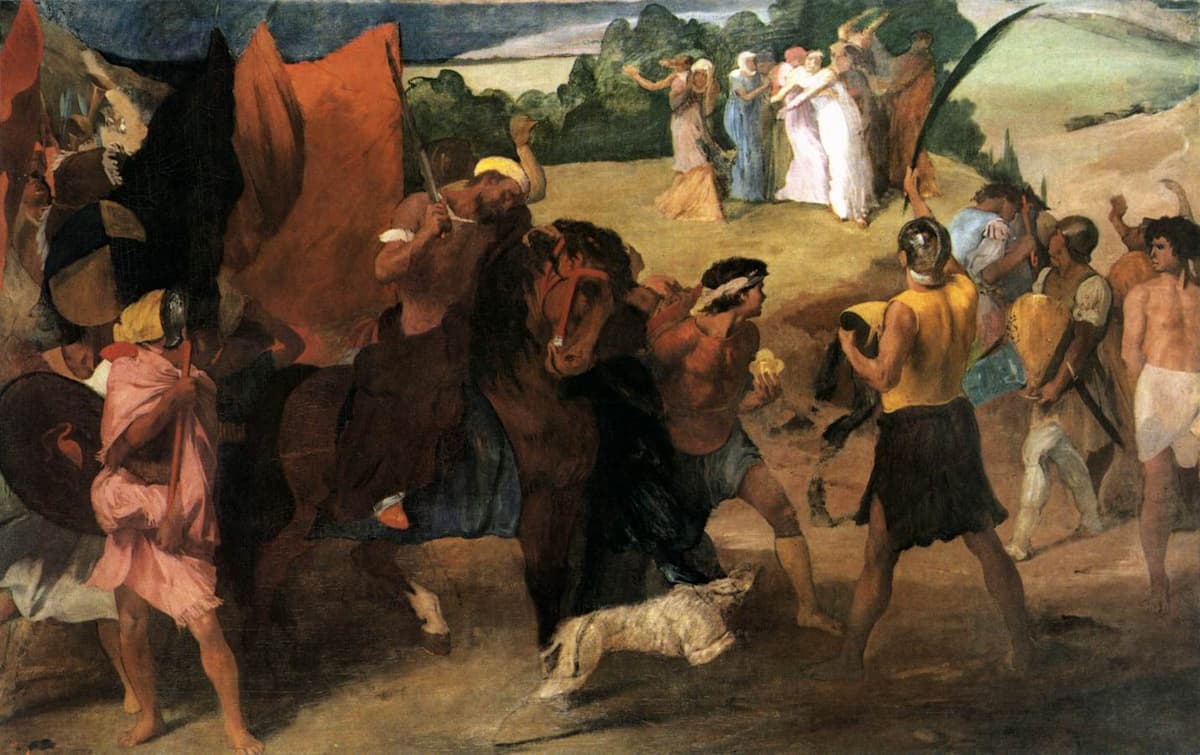
Edgar Degas: The Daughter of Jephtha
The book of Genesis contains the story of Adam and Eve in the Garden of Eden, and also the gruesome tale of their two sons Cain and Abel. Cain was the first baby to be born into the world, and he became a farmer raising grains and fruit. His younger brother Abel tended to a flock of sheep, and he became a shepherd. Adam and Eve built an altar, burned offerings and made their prayers to God. They asked that their sins be forgiven and that God may bless them. Cain and Abel also offered gifts to God upon the altar. Cain brought fruits and grains, and Abel brought a sheep. For one reason or another, God was pleased with Abel, but he was unhappy with Cain and his offering. God reprimanded Cain, but instead of being sorry for his sins and asking God for forgiveness, Cain got very angry with God. And he got even angrier with his brother Abel. So when they were out in the field together, Cain struck his brother and killed him. So the first baby in the world grew up to be the first murderer as well.
Bernardo Pasquini: Cain and Abel, (excerpts) (Gian Paolo Fagotto, narrator; Nadia Ragni, vocals; Claudio Cavina, vocals; Andreana Galante, vocals; Gian Paolo Fagotto, vocals; Furio Zanasi, vocals; Il Teatro Armonico; Alessandro De Marchi, harpsichord/cond.)
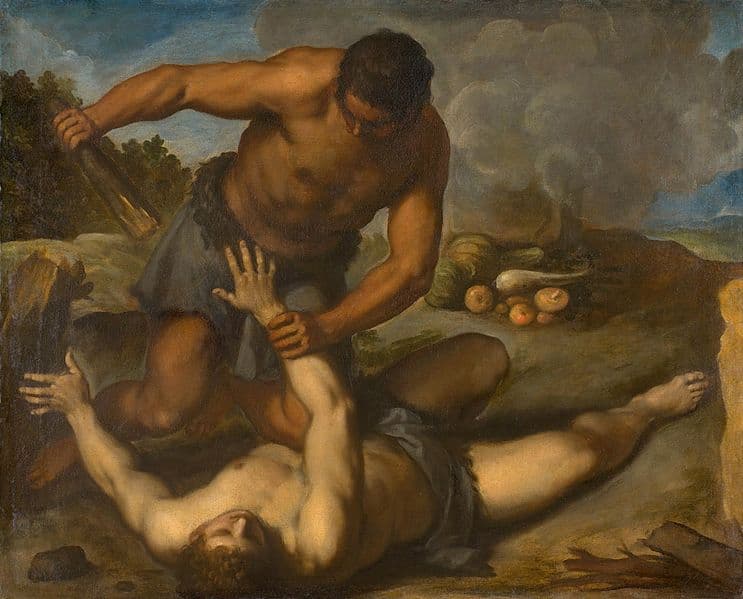
Palma il Giovane: Cain and Abel
Of all the stories in the OT, none is more dramatically intense than the story of Moses, to whom most of the book of Exodus is dedicated. With the Egyptian Pharaoh fearing the increasing independence and growth of the tribe of Israel, he decrees that all newborn Hebrews be drowned. Moses is placed into a basket by his mother and floated on the Nile, where Pharaoh’s daughter finds him. Moses grows up in the Pharaoh’s household, but when he comes into contact with his tribal brothers, he recognizes their hopeless situation. From a burning bush, he hears the voice of God, calling him to deliver the Hebrew people from Egyptian rule. Moses pleads for freedom for the Israelites, but the Pharaoh remains unmoved. As we know, Moses is eventually able to part the Red Sea and lead the Israelites to the Promised Land, but in the operatic hands of Rossini, the story needed a romantic twist. So he introduces a love story between Pharaoh’s son and an Israelite girl.
Gioachino Rossini: Mose in Egitto – Act I: Introduction: Chi ne aiuta! Oh ciel! (Ernesto Palacio, tenor; Zehava Gal, mezzo-soprano; Siegmund Nimsgern, bass; Ambrosian Opera Chorus; Philharmonia Orchestra; Claudio Scimone, cond.)
Gioachino Rossini: Mose in Egitto – Act I: Celeste man placata! (Ruggero Raimondi, bass; Siegmund Nimsgern, bass; Sandra Browne, mezzo-soprano; Philharmonia Orchestra; Claudio Scimone, cond.)
Gioachino Rossini: Mose in Egitto – Act I: Tutto sorride intorno (Philharmonia Orchestra; Claudio Scimone, cond.)
Drawing for Mosè in Egitto © Wikipedia
The Old Testament Book of Ruth tells the story of the marriage of Boaz of Bethlehem to the Moabite Ruth, a significant event in Jewish and Christian history because it marked the founding of the house of David, from which Jesus came. When Naomi and her husband left Bethlehem to escape a famine, they settled in Moab and their two sons married Moabite women. Her husband and both of her sons die, so Naomi decided to return to her native country with her two daughters-in-law, Ruth and Orpah. Orpah eventually returns to Moab and her people, but Ruth remains in Bethlehem. In a field belonging to the prosperous widower Boaz, people were allowed to pick up scraps of corn, but Ruth is turned away as a stranger. Boaz intervenes, and gives Ruth permission to pick up the corn. And as it happens, Boaz falls in love with Ruth and takes her as his wife. Boaz and Ruth have a son, whom they named Obed. Obed, in turn, has a son named Jesse, and Jesse is the father of David, the shepherd boy who became king. So Ruth, the young woman of Moab, who chose the people and the God of Israel, became the mother of kings.
Lennox Berkeley: Ruth, Op. 50 – Scene 3: O clap your hands, all ye people! (Mark Tucker, tenor; City of London Sinfonia; Richard Hickox, cond)
Lennox Berkeley: Ruth, Op. 50 – Scene 3: Thou comest in the stillness of the night (Mark Tucker, tenor; Jean Rigby, mezzo-soprano; City of London Sinfonia; Richard Hickox, cond.)
Lennox Berkeley: Ruth, Op. 50 – Scene 3: Rejoice, O Israel, rejoice (City of London Sinfonia; Richard Hickox, cond.)
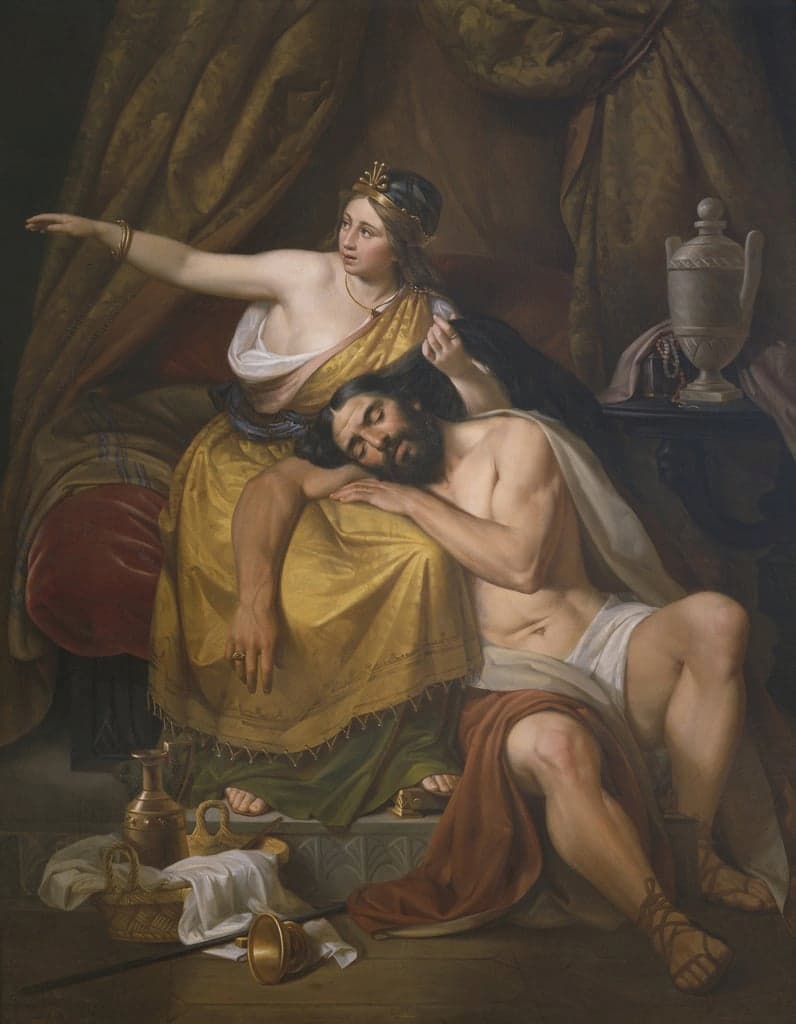
José Salomé Pina: Samson and Delilah © meisterdrucke.uk
From Chapter 16 of the Book of Judges comes the story of Samson, whose heroic deeds earned him both fame and leadership among the Hebrews. He initially slew a lion with his bare hands and triumphed over 1000 Philistines while wilding only the jawbone of an ass. Yet despite his great strength, Samson has a tender heart and he falls in love with a Philistine woman by the name of Delilah. Delilah is tasked to find the secret of Samson’s strength. She pleads with him day and night, and after weeks on end, Samson finally tells her “I made a vow to the Lord not to drink wine and not to cut my hair, because if my hair be cut short, the Lord would forsake me.” Knowing the secret, Delilah cuts Samson’s hair while he is asleep, and the Philistines easily overpower him. They take him to a prison in Gaza, but while incarcerated his hair grows long again and his strength returns. One day the Philistines hold a great feast in the temple of their fish-god Dagon, and Samson is brought to amuse the crowd. While Samson stands between two pillars, he pulls them over and brings down the roof of the temple. Samson is killed, but in his death he killed more of the Philistines than he had killed during his entire life.
Camille Saint-Saëns: Samson et Dalila, Op. 47 (excerpts) (Paata Burchuladze, bass; José Carreras, tenor; Agnes Baltsa, mezzo-soprano; Donald George, tenor; Bavarian Radio Symphony Orchestra; Jonathan Summers, baritone; Bavarian Radio Chorus; Robert Swensen, tenor; Simon Estes, bass; Urban Malmberg, baritone; Colin Davis, cond.)
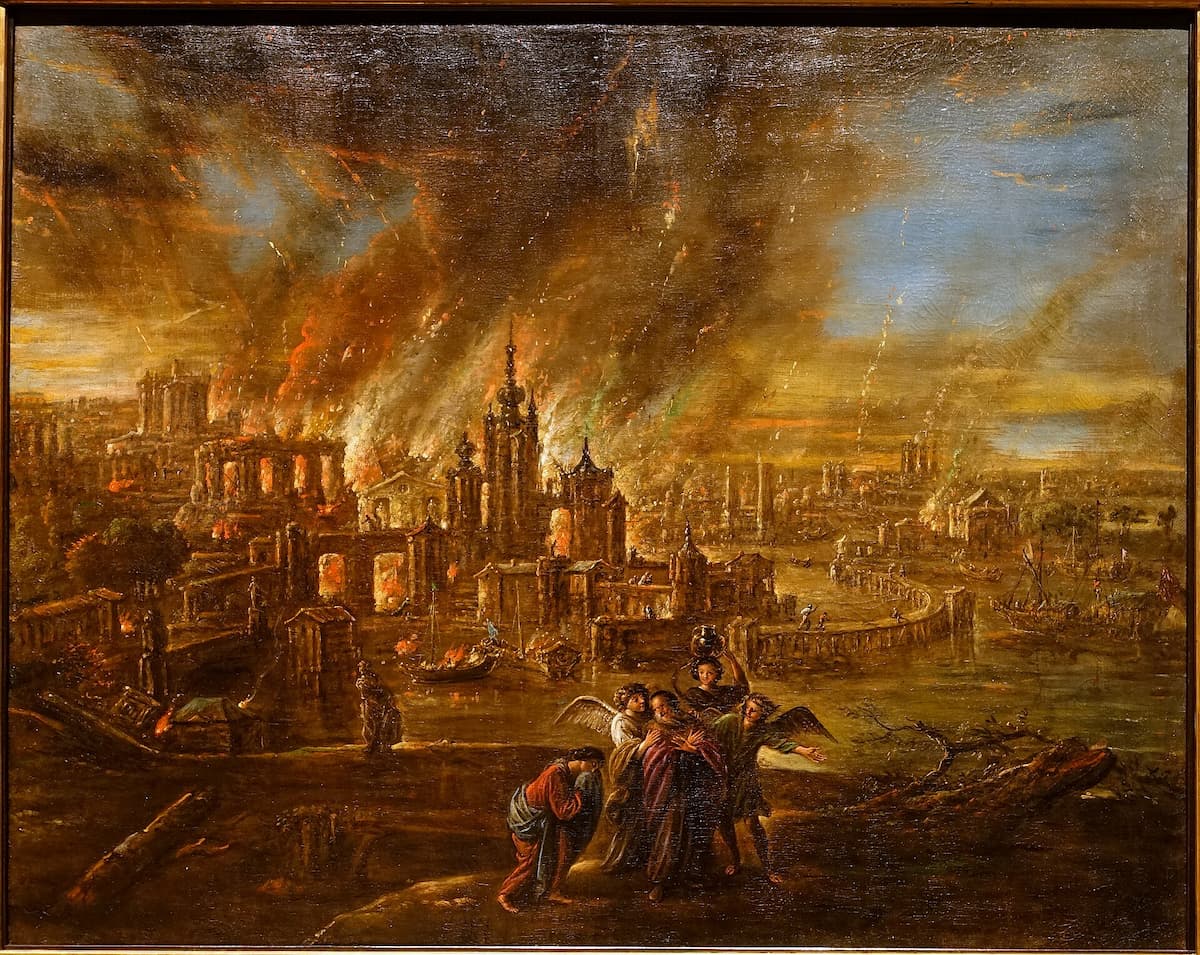
Sodom and Gomorrah afire by Jacob de Wet II, 1680 © Wikipedia
The Book of Genesis brings us the story of the wickedness of Sodom and Gomorrah, allied with the five rich cities of the plains and located on the Jordan River in the land of Canaan. One day, Abraham is peacefully sitting outside his tent when he receives three visitors. They are on their way to Sodom to see the evil doings with their own eyes and if necessary, destroy the city. But Abraham already knows that Sodom is not a good place. He says to one of the visitors, “Maybe there are fifty good people in the city. Will you not spare the city for the sake of fifty good men?” The visitor agrees and Abraham even haggles him down to ten good men. However, the only good man to be found in Sodom is Lot, a nephew of Abraham. Lot is urged to leave the city immediately with his two virgin daughters and his wife. As Sodom and Gomorrah are destroyed with brimstone and fire from the Lord, Lot is commanded to “not look back.” Lot keeps on going but his wife stops to look back at the city and is instantly turned into a pillar of salt.
For more of the best in classical music, sign up for our E-Newsletter
Johann Sebastian Bach: “Ich elender Mensch, wer wird mich erlösen,” BWV 48 (Joanne Lunn, soprano; William Towers, alto; James Gilchrist, tenor; Peter Harvey, bass; Monteverdi Choir; English Baroque Soloists; John Eliot Gardiner, cond.)

